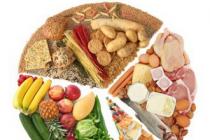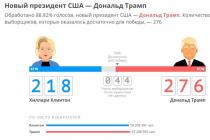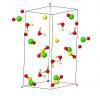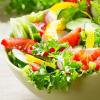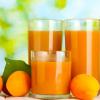Infant colic is a very specific problem that occurs in most babies in the first weeks of life and goes away after about 3 months of age. The nature of the phenomenon, which is called infant colic, is still not known exactly, but it is worth distinguishing them from other problems with a small tummy - bloating, excessive gas formation, bowel dysfunction.
Modern pediatricians, led by WHO, claim that infant colic is not related to the mother’s diet and is a physiological process of restructuring the child’s body and adapting it to life outside the mother’s tummy. But bloating and increased gas formation may well be triggered by certain foods. How a mother’s nutrition during breastfeeding can affect problems with the baby’s tummy, says breastfeeding specialist and dairy blogger Nina Zaichenko.
By the way, if in the countries of the former CIS it is believed that in case of colic it is necessary to install a gas tube, then Western parents often put the baby in a car seat and roll it around until he calms down - in this way they influence the vestibular apparatus. There is a version, quite plausible, that colic problems are associated not with the tummy, but with the child’s brain.
How to recognize colic
You can distinguish colic from other childhood problems by characteristic signs:
- Infantile colic begins 2-3 weeks after birth
- Severe crying for no apparent reason, difficult to calm the child down
- Crying attacks begin at about the same time, most often in the evening, and last from 10 to 30 minutes
- While crying, the baby may pass gas, the stomach may be tense, and the baby’s legs may be pressed toward the tummy.
- Gradually appear less often and disappear completely by 3-4 months

Does diet affect colic?
Mothers often refer to colic as problems with their baby’s tummy, such as bloating, flatulence, and others. The truth is that any discomfort, and even more so, painful sensations, causes a crying attack in the child - after all, this is still his only way of communication.
There are several versions of the effect of mother’s milk on children’s gastrointestinal tract, which in no case are a reason to stop feeding:
- The child eats too much milk, and therefore the enzymes, which are still very few, do not have time to break down all the substances that reach them. This especially applies to the so-called “near milk”, which the baby receives as soon as he starts eating. It is less fatty, but richer in lactose (milk sugar), and the baby still has few enzymes to break it down. Expressing a little milk before feeding may help.
- Mom eats something that causes increased gas formation in herself. As you know, substances from the mother’s blood enter milk, which means those that come with food. It is not for nothing that in the first couple of weeks after childbirth it is recommended to abstain from those foods that cause flatulence. Thus, a nursing mother’s diet should be adjusted based on her condition and individual characteristics of the absorption of certain foods.
Now listen to what lactation consultant Natalya Zaichenko says about this
26 Mar 1 3210
Natalya Uryvaeva: The process of feeding a child is so natural that it would be strange if its success directly depended on the mother’s nutrition. In this case, few babies would survive today in poor countries and in earlier, prehistoric times.
As modern research shows, the level of fat, vitamins and minerals in breast milk does not depend on the diet of the nursing mother. The amount of protein, as has been known for a long time, also has a certain meaning under any conditions. Nature intended that during pregnancy a woman accumulates everything she needs to feed her baby. Fat deposits and reserves of nutrients accumulated over 9 months are gradually consumed over the next 6-9 months. It is through reserves that the uninterrupted production of always healthy and satisfying milk is ensured, regardless of the number of meals or the quality of the products.
The amount of milk depends only on hormones, which tell the body how much milk needs to be produced for the next feeding. These hormones are released when the baby suckles at the breast. Therefore, the most effective way to increase lactation is to put the baby to the breast as often as possible and not finish feeding until the baby releases the nipple.
How much should you eat?
Perhaps one of the most persistent misconceptions is that a breastfeeding woman is obliged to eat for two. Otherwise, the baby will not have enough milk.
Studies on poorly nourished breastfeeding mothers found that increasing their caloric intake did not affect the amount of milk they produced. The extra calories went into the mother's fat reserves, and not into her milk. And this is understandable, because it has long been proven that the amount of milk depends to a large extent on the quantity and quality of breastfeeding.
In this regard, modern recommendations say: it is enough for a nursing mother to add one meal (if she did not do this during pregnancy). This could be a second, light dinner or breakfast, during which she will eat an additional 300-500 kcal. This is approximately how many calories an infant consumes per day.
About the need for a diet
On the one hand, a nursing mother is forced to eat to her fullest, on the other hand, they are told from all sides that it is impossible to eat specific foods, excluding a good half of the food that is healthy and necessary for a woman. This applies to everything that can increase gas formation (this is not only cabbage and legumes, but also bread, grapes), as well as potential allergens (citrus fruits, strawberries, honey, nuts, eggs, even milk). It also includes pork and fatty fish. Various sources can add many more restrictions to this list.
Fact
In its pure, unprocessed form, only artificial food additives (dyes, preservatives, stabilizers, etc.) and some medications penetrate into milk.
In fact, almost everything! To understand this, it is enough to understand the process of milk synthesis. Food eaten by a woman enters the gastrointestinal tract, is digested, and the substances it contains are absorbed by the intestinal walls and enter the blood. Next, the mammary gland produces milk from the mother's blood and lymph. That is, all fermentation processes from cabbage remain in the intestines, and allergens are safely processed in it.
It’s another matter if the mother’s body reacts too violently to cabbage or milk, or if the mother is sensitive to citrus fruits. Increased gas production by the mother changes the composition of her blood, which means it could potentially affect breast milk. But even in this case, the child will not necessarily react to the vegetable stew eaten by the mother for lunch. It’s the same with allergies: with an allergic mother, the child is more likely to be sensitive to the same products, but not always.
The most important thing is that, while in the womb, the child has already become familiar with many foods and even allergens. And if substances from such products continue to be supplied in small doses through mother’s milk, the baby’s body will gradually learn to cope with them. In this case, when complementary foods are introduced, the child is less likely to have an allergy or other inappropriate reaction.
Milk and cottage cheese
Another horror story: if she doesn’t drink milk, she won’t have any; If he doesn’t eat cottage cheese, the child will have weak bones, his teeth won’t grow, and his mother’s teeth will fall out.
But which wild animal drinks milk to improve lactation? And no one feeds them cottage cheese.
Milk is healthy in itself, as it contains many useful substances. And you can and should drink it, without fanaticism, but only if the mother wants it, and if her body digests milk well. The same applies to cottage cheese. The product is healthy, but forcing yourself to eat it, even for the sake of your child, is not worth it. Food eaten without desire and appetite will not be accepted by the body, and therefore will not be beneficial. That's how we are made.
Both milk and cottage cheese are successfully replaced with other products: cheese, kefir or yogurt, salmon fish, legumes, cabbage, fresh herbs, carrot juice, raisins and dried figs.
Onions, garlic, spices and other flavors
Another well-known myth: a child may refuse to breastfeed if the mother ate onions or garlic. Scientists have tested this statement. It turned out that no strong-smelling foods or seasonings can curb a baby’s appetite. Moreover, after the mother eats garlic, the baby sucks with greater desire and applies more often.
Important!
The cause of problems that arise during breastfeeding, as a rule, is not the nature of the mother’s diet, but other factors, such as the nervous environment in the home, difficult adaptation, immaturity of the gastrointestinal tract, immune system and other organs and systems of the baby.
Fatty foods
The old school argued that the fat content of milk depends on the caloric intake of the mother and how much fatty foods she eats.
In fact, it turned out that the fat content of breast milk depends on many reasons, among which the quality of nutrition is one of the least significant. First of all, the mother’s body responds to the baby’s needs. The state of the environment matters (in the summer, in the heat, fat is harder to digest) and the time of day (at night the child must sleep, and the calorie content of milk increases due to the fat content). Also during feeding, milk from one breast has different fat content. The fattest milk that the baby sucks out at the end.
How much to drink?
They say that you should drink up to 2 liters of fluid per day. Moreover, you should drink a glass of some drink before each feeding. Otherwise there will be little milk.
Considering modern recommendations about feeding on demand, it is scary to imagine that, following old recommendations, a woman will have to drink up to 20 glasses of water in the first month. Add the liquid you get during each meal.
However, modern medicine knows that if there is excess fluid in the body, it is difficult for it to “give” milk, that is, stagnation can easily occur. But a nursing mother should not feel thirsty. So listen to your body and drink exactly as much as you want.
Coffee
The previous recommendation to give up coffee and other caffeine-containing drinks and medications has now also been adjusted. A strange recommendation, considering that caffeine is also present in significant doses in tea, especially green tea, which mothers are even strongly advised to drink.
Although, indeed, some babies have sleep disturbances due to caffeine and become capricious. However, if during pregnancy the mother allowed herself a cup of coffee in the morning, most likely the baby is already accustomed to this substance. And after his birth, you can carefully try weak natural coffee. Most likely, there will be no reaction from the baby.
In addition, some women physically cannot do without coffee in the morning. How will a mother take care of her baby if she cannot get out of bed?
Vitamins
To ensure that milk contains enough nutrients, a woman needs to take special multivitamins. That's what they thought before.
The female body is designed in such a way that during the feeding of the child it gives up all its reserves, both fat and reserves of vitamins and minerals. Therefore, it does not matter for the quality of breast milk whether a woman takes vitamin supplements. In this case, it is more important for her to eat rationally, since if there is a lack of vitamins in the diet, the mother’s body will suffer first. And there will always be resources for the development of the baby’s body.
Therefore, taking vitamins with a proper diet and proper daily routine is not at all necessary.
Fact
Human milk has a high level of nutrients until the child reaches 1.5-2 years of age. Even after this period, it does not become “empty” and even less “harmful”, as some doctors still claim.
Approach the issue of nutrition sensibly, eat fully, “correctly”, the same way you ate during pregnancy. No sacrifices are required from you.
Taisiya Lipina
Reading time: 6 minutes
A A
Breastfeeding is a natural process established by nature itself. The unity of mother and baby helps the newborn to feel love and care, and the mother to establish a psycho-emotional connection with the baby.
And in order for the feeding process to be painless for two, you need to find out how the nutrition of a young mother affects the quality and taste of breast milk.
How does a mother's diet affect the quality of her baby's milk?
Healthy and nutritious nutrition of the mother determines the composition of breast milk and its quantity.
Protein that enters the body with mother's milk– one of the main components responsible for the growth of a child and the formation of his nervous system. A lack of protein in a baby's body can negatively affect its development.
Important!
An excess of easily digestible carbohydrates in the mother's diet (confectionery, honey, sugar, jam, chocolate, breakfast cereals, grapes and bananas) makes breast milk very sweet. Such milk can cause dysbiosis in a newborn.
That is why it is important for a nursing mother to remember that sugar in her body is released not only from sweets, but also from other foods, and then in the right amount enters the baby’s body with breast milk in the form of milk sugar (lactose).
What foods should be included in a nursing woman's diet?
The daily calorie intake for a young mother is 3000-3200 calories. This is enough for both mother and baby - the energy costs for one breastfeeding are 500-800 calories, the rest will serve as energy for the mother herself. But exceeding the norm can provoke hypogalactia- decrease in the amount of breast milk until it disappears.
To ensure that the baby and mother feel good, pediatricians recommend that breastfeeding women adhere to rules 1-1-4- this is the ratio of proteins, fats and carbohydrates, and eat healthy foods in quantities sufficient for two.
Healthy foods in the diet of a nursing woman:
- Lean fish (protein, vitamin D).
- Dairy and fermented milk products (protein, calcium).
- Liver (folic acid).
- Cereals (millet, oatmeal, buckwheat – vitamin B1).
- Cottage cheese, cheeses (vitamin B2).
- Butter, eggs, pork, beef liver (vitamin A).
- Carrots, greens (beta-carotene).
- Red bell pepper, currants, sea buckthorn (vitamin C).
- Walnuts (increase the fat content of milk, making it more nutritious).
You should also not forget about the rules for drinking fluids:
The daily fluid intake for a nursing woman is no more than 2 liters. Excess fluid impairs the properties of breast milk, making it watery and diluted.
In the first months of life, the child is especially sensitive to substances that come with mother's milk, so the young mother should pay special attention to composing her diet. Improper nutrition of the mother can cause diathesis, colic, bloating, and diarrhea in the child.
These products are prohibited for women during breastfeeding:
- White cabbage, Brussels sprouts, broccoli (cause bloating and cause colic in the baby).
- Legumes (provoke flatulence in a newborn).
- Citrus fruits (can provoke diathesis).
- Smoked meats (contain harmful substances that can cause allergies in a child).
- Fried and fatty foods (promotes colic).
- Mushrooms (can cause severe digestive upset in a baby).
- Large quantities of pasta and baked goods (cause fermentation and gas formation in the child).
- Carbonated drinks (dyes contained in drinks can cause allergies in a newborn).
- Coffee (stimulates the child’s nervous system).
Reasons why newborns refuse to drink breast milk
There are several main reasons why a baby refuses mother's milk:
- Maternal malnutrition- if a woman consumes spicy, fatty, smoked foods, onions, garlic and various spices, then her milk may acquire an unpleasant taste for the child. Medicines and herbs can also change the taste of milk. Before taking any medications, a nursing mother should consult a doctor.
- Teething- this painful process for the baby can be the reason for breast refusal. Pay attention to your child's gums - if they are swollen and enlarged, it means he is teething.
- Bottle feeding- another reason for refusing breastfeeding, because it is much easier for a baby to suck milk from a bottle. Having become accustomed to receiving it quickly and effortlessly, the child refuses his mother’s breast.
- Runny nose- when a baby’s nose is stuffy, he cannot suck milk and breathe at the same time, so before feeding you should clear the baby’s nose of dry crusts and mucus.

During the period of breastfeeding, a woman gives her baby more than just milk - she boosts the baby’s immunity, lays the foundations for his health, but most importantly, the mother gives her love.
During feeding, the baby feels protected next to his mother. This is what makes feeding a newborn doubly comfortable and enjoyable. On the other hand, mothers who have lost milk do not need to reproach themselves - it is important to learn to give their love to the baby in a different way.
Rules for creating a menu for a nursing woman
The main principle of creating a diet for a nursing woman is the mother’s needs and the baby’s reaction to certain foods. Everything should be tasty and healthy for both you and your child.
We create a menu for the breastfeeding period:
- We focus on those products that are allowed and do not cause health problems for the child. From the 2nd month of the baby’s life, we gradually begin to introduce one new product into the mother’s daily diet.
- When preparing a dish, it is advisable to follow the rule of light food processing (cook in a double boiler, slow cooker, bake in the oven, stew in a tightly sealed container).
- We do not consume products containing preservatives, dyes, thickeners, flavor enhancers, as well as exotic fruits and vegetables.
- During the first month of a child’s life, we do not consume foods that cause bloating and colic in the baby.
- If an allergic reaction occurs in the baby, we gradually exclude foods that may be the cause.
- The best drinks for a nursing mother to drink are water, dried fruit compote, and tea.
- The diet of a nursing woman should be complete and not meager in terms of food - the richer your menu, the better.
Menu for 7 days
When creating an individual diet, use the lists of permitted and prohibited foods, and try to diversify your diet as much as possible.
Monday:
Breakfast. Buckwheat porridge in water with sunflower oil, dried fruit compote.
Dinner. Chicken breast soup, 200 g mashed potatoes.
Afternoon snack. Stewed vegetables (carrots, zucchini, eggplants, bell peppers, onions).
Dinner. A glass of kefir.
Tuesday:
Breakfast. Cheese pancakes with sour cream, tea.
Dinner. Soup with buckwheat and boiled meat, 1 quail egg.
Afternoon snack. 200 g cottage cheese casserole with cherries.
Dinner. 200 g beet salad with olive oil.
Wednesday:
Breakfast. A glass of yogurt.
Dinner. Soup with beef meatballs, 100 g of rice with stewed vegetables.
Afternoon snack. Baked apples (green) in dough.
Dinner. 200 g.
Thursday:
Breakfast. Kefir, biscuits.
Dinner. Fish soup, 100 g buckwheat porridge, 1 chicken egg.
Afternoon snack. Fruit of your choice (peach, several plums) and 30 g of walnuts.
Dinner. Mashed potatoes, 100 g boiled chicken breast, 50 g steamed asparagus.
Friday:
Breakfast. with dried fruits, tea.
Dinner. Vegetarian vegetable soup with sour cream, 100 g oatmeal, 100 g boiled turkey.
Afternoon snack. A piece of watermelon.
Dinner. White omelette.
Saturday:
Breakfast. Baked apples with currants, dried fruit compote.
Dinner. Vegetable puree soup (onions, carrots, celery root, potatoes), 100 g of baked rabbit meat with sour cream.
Afternoon snack. A glass of yogurt.
Dinner. Fish baked with vegetables.
Sunday:
Breakfast. 1 quail egg, 50 g hard cheese, tea.
Dinner. Chicken broth, 200 g vegetable stew.
Afternoon snack. Cottage cheese casserole.
Dinner. 100 g boiled turkey, stewed vegetables.
Perhaps one of the most persistent misconceptions is that a breastfeeding woman is obliged to eat for two. Otherwise, the baby will not have enough milk.
Studies on poorly nourished breastfeeding mothers found that increasing their caloric intake did not affect the amount of milk they produced. The extra calories went into the mother's fat reserves, and not into her milk. And this is understandable, because it has long been proven that the amount of milk depends to a large extent on the quantity and quality of breastfeeding.
In this regard, modern recommendations say: it is enough for a nursing mother to add one meal. This could be a second, light dinner or breakfast, during which she will eat an additional 300-500 kcal. This is approximately how many calories an infant consumes per day.
About the need for a diet
On the one hand, a nursing mother is forced to eat to her fullest, on the other hand, they are told from all sides that it is impossible to eat specific foods, excluding a good half of the food that is healthy and necessary for a woman. This applies to everything that can increase gas formation (this is not only cabbage and legumes, but also bread, grapes), as well as potential allergens (citrus fruits, strawberries, honey, nuts, eggs, even milk). It also includes pork and fatty fish. Various sources can add many more restrictions to this list.
Fact
In its pure, unprocessed form, only artificial food additives (dyes, preservatives, stabilizers, etc.) and some medications penetrate into milk.
So what can a nursing mother eat? In fact, almost everything! To understand this, it is enough to understand the process of milk synthesis.
Food eaten by a woman enters the gastrointestinal tract, is digested, and the substances it contains are absorbed by the intestinal walls and enter the blood. Next, the mammary gland produces milk from the mother's blood and lymph. That is, all fermentation processes from cabbage remain in the intestines, and allergens are safely processed in it.
It’s another matter if the mother’s body reacts too violently to cabbage or milk, or if the mother is sensitive to citrus fruits. Increased gas production by the mother changes the composition of her blood, which means it could potentially affect breast milk. But even in this case, the child will not necessarily react to the vegetable stew eaten by the mother for lunch. The same goes for: with an allergic mother, the child is more likely to be sensitive to the same products, but not always.
The most important thing is that, while in the womb, the child has already become familiar with many foods and even allergens. And if substances from such products continue to be supplied in small doses through mother’s milk, the baby’s body will gradually learn to cope with them. In this case, with , the child is less likely to have an allergy or other inappropriate reaction.
Milk and cottage cheese
Another horror story: if she doesn’t drink, she won’t have it; If he doesn’t eat cottage cheese, the child will have weak bones, his teeth won’t grow, and his mother’s teeth will fall out.
But which wild animal drinks milk to improve lactation? And no one feeds them cottage cheese.
Milk is healthy in itself, as it contains many useful substances. And you can and should drink it, without fanaticism, but only if the mother wants it, and if her body digests milk well. The same goes for cottage cheese. The product is healthy, but forcing yourself to eat it, even for the sake of your child, is not worth it. Food eaten without desire and appetite will not be accepted by the body, and therefore will not be beneficial. That's how we are made.
Both milk and cottage cheese are successfully replaced with other products: cheese or yogurt, salmon fish, legumes, cabbage, fresh herbs, carrots, raisins and dried figs.
Onions, garlic, spices and other flavors
Another well-known myth: a child may refuse to breastfeed if the mother ate onions or garlic.
Scientists have tested this statement. It turned out that no strong-smelling foods or seasonings can curb a baby’s appetite. Moreover, after the mother eats garlic, the baby sucks with greater desire and applies more often.
Important!
The cause of problems that arise during breastfeeding, as a rule, is not the nature of the mother’s diet, but other factors, such as the nervous environment in the home, difficult adaptation, immaturity of the gastrointestinal tract, immune system and other organs and systems of the baby.
Fatty foods
The old school argued that the fat content of milk depends on the caloric intake of the mother and how much fatty foods she eats.
In fact, it turned out that the fat content of breast milk depends on many reasons, among which the quality of nutrition is one of the least significant. First of all, the mother’s body responds to the baby’s needs. The state of the environment matters (in the summer, in the heat, fatty foods are more difficult to digest) and the time of day (at night the child must, and the caloric content of milk increases due to the fat content). Also during feeding, milk from one breast has different fat content. The fattest milk is the one that the baby sucks out at the end.
How much to drink?
They say that you should drink up to 2 liters of fluid per day. Moreover, you should drink a glass of some drink before each feeding. Otherwise there will be little milk.
Considering modern recommendations about feeding on demand, it’s scary to imagine that, following the old recommendations, a woman will have to drink up to 20 glasses in the first month. Add the liquid you get during each meal.
On the other hand, it was previously advised to limit fluid intake in the first days or even in the first month after the birth of the baby, fearing stagnation due to increased fluid levels.
Modern medicine knows that if there is excess fluid in the body, it is difficult for it to “give” milk, that is, stagnation can easily occur. But a nursing mother, like any person, should not feel thirsty, because this can negatively affect well-being and even health. So listen to your body and drink exactly as much as you want.
Coffee
The previous recommendation to give up coffee and other caffeine-containing drinks and medications has now also been adjusted. It has become known that caffeine is also present in significant doses in tea, especially green tea, which mothers are even strongly advised to drink.
It has been noticed that some children have sleep disturbances due to caffeine and become moody. However, if during pregnancy the mother allowed herself a cup of coffee in the morning, most likely the baby is already accustomed to this substance. And after his birth, you can carefully try weak coffee. There should be no reaction from the baby.
In addition, some women physically cannot do without coffee in the morning. How will a mother take care of her baby if she cannot get out of bed?
Vitamins
To ensure that milk contains enough nutrients, a woman needs to take special multivitamins. That's what they thought before.
The female body is designed in such a way that during the feeding of the child it gives up all its reserves, both fat and mineral reserves. Therefore, it does not matter for the quality of breast milk whether a woman takes vitamin supplements. In this case, it is more important for her to eat rationally, since if there is a lack of vitamins in the diet, the mother’s body will suffer first. And there will always be resources for the development of the baby’s body.
Taking vitamins with a proper diet and proper daily routine is not at all necessary. But if you decide to play it safe, then take frequent breaks when taking multivitamin medications. For example, after 2 weeks of taking it, put it off for the next 2 weeks. This way you will be sure that the ratio of vitamins in the body will be at the correct level.
Fact
The concentration of nutrients, which are always very abundant in breast milk, increases even more after 1.5-2 years. Women's milk is never “empty” and even less “harmful”, as some doctors still claim.
A few words about the dependence of the quality and quantity of milk on the mother’s nutrition
The process of feeding a child is so natural that it would be strange if its success directly depended on the mother’s nutrition.
As we found out earlier, the level of fat, vitamins and minerals in breast milk does not depend on the diet of the nursing mother. The amount of protein, as has been known for a long time, also has a certain meaning under any conditions. Nature intended that during pregnancy a woman accumulates everything she needs to feed her baby. Fat deposits and reserves of nutrients accumulated over 9 months are gradually consumed over the next 6-9 months. It is through reserves that the uninterrupted production of always healthy and satisfying milk is ensured, regardless of the number of meals or the quality of the products.
The amount of milk depends only on hormones, which tell the body how much milk needs to be produced for the next feeding. These hormones are released when the baby suckles at the breast. Therefore, the most effective way to increase lactation is to put the baby to the breast as often as possible and not finish feeding until the baby releases the nipple.
Approach the issue of nutrition sensibly, eat fully, “correctly” - the same way you ate during pregnancy. No sacrifices are required from you.
Nutrition for a nursing woman - basic principles
Contrary to the belief of most young mothers and the recommendations of some doctors, breastfeeding does not require a strict diet on the part of the nursing mother. The diet of a nursing mother should be as close as possible to the diet of a healthy person leading a healthy lifestyle. Moreover, a strict diet can harm the health of a nursing woman. There are only a few food groups whose consumption is recommended to be reduced or completely eliminated during breastfeeding.
In order for the breastfeeding process to be smooth and enjoyable for both mother and baby, several principles should be adhered to, according to which it is necessary to organize proper nutrition for a woman:
You should eat often - always 3 times and an additional 2-3 snacks. It is important not to convey this, since overeating affects not only the condition of the figure, but also the health of the baby;
It is best to cook food in a double boiler or boil or bake. This way the vitamins are preserved and the food will be truly healthy;
The basis of proper nutrition is cereals, vegetables, and fruits. You should consume fermented milk products every day, among which it is better to give preference to kefirs, sour cream, plain yoghurts, and cottage cheese;
When including vegetables and fruits in your diet, give preference to those that grow in your region. They are more familiar to the body and significantly reduce the possibility of allergic reactions. Vegetables and fruits are sources of carbohydrates and contain fiber, which is so necessary for the normal functioning of the gastrointestinal tract and helps remove toxins and harmful substances from the body;
A nursing woman's diet should also include vegetable oils - they can be used to season vegetable salads;
A woman's diet during breastfeeding should be complete, balanced and varied. If there is no opportunity for adequate daily nutrition, then it is necessary, after consulting a doctor, to supplement the diet with vitamin preparations;
The percentage of the three main nutritional components during breastfeeding should be as follows:
Carbohydrates, which should be mostly complete sugars that fruits and cereals supply the body with, should account for 50-55% of the total daily diet;
30% of all calories consumed should come from complete fats;
In breastfeeding nutrition, 15-20% is allocated to proteins.
Calcium– one of the main elements in nutrition during breastfeeding, necessary for complete, nutritious breast milk. At the same time, even if you don’t like cow’s milk, you can get the required amount of calcium from salmon, legumes, broccoli, cabbage, raisins, herbs, carrot juice and others. Perhaps your body tolerates fermented milk products well - an essential product in the breastfeeding diet and an excellent source of calcium.
Iron necessary for the formation of hemoglobin, which in turn helps to saturate all organs and tissues of the body with oxygen. Everyone knows the main source of iron - various varieties and types of meat. To improve the absorption of iron, along with meat, it is recommended to include foods rich in vitamin C in your breastfeeding diet - vegetable juices, herbs (especially parsley). It was to preserve the hemoglobin necessary for breastfeeding that nature made sure that the nursing mother did not have menstruation.
- You need to be careful about the choice of foods you eat. They must be fresh, grown without nitrates and other substances harmful to the body of the mother and child. Harmful substances that enter the mother's body with food during breastfeeding with milk enter the child's body, leading to the most unforeseen consequences;
Be sure to follow the correct drinking regime. Water not only removes harmful substances from the body, but also promotes normal lactation. It is recommended to drink at least 2 liters of fluid per day. It is better to avoid carbonated water. Dried fruit compote, various teas, and fruit drinks are perfect for nursing mothers.
Everything seems simple and clear, but not everything has settled into place in your head yet, you want specifics and explanations in order to turn off this very head yourself, and adequately fend off the attacks of mothers and mothers-in-law, screaming every time you bring a piece of something to your mouth , which in their opinion is hopelessly harmful. Here I found some interesting information. Written with humor, quite believable and logical. I think it will appeal to many mothers who are intimidated by the stereotypes of our grandmothers from the Soviet and pre-revolutionary past. So, let's destroy them (stereotypes, of course)!
“The most common myth about nutrition for a nursing mother is the need for a strict diet. The child does not have any problems yet, but there are already limitations. This is not to say that these diets do not lead to tangible results - they certainly can. A nursing mother spends an additional 500 kcal per day. But in addition to feeding the child, she also needs to look good, be healthy, perform household chores, and even earn extra money. Nutrition must be complete and varied, otherwise the body will become depleted. The myth of a strict diet very slowly, creakingly, clinging to instructions in clinics and the behests of mothers-in-law, is becoming a thing of the past. Wave after him!
-Good cabbage will not spoil milk
Thanks to modern science, we have learned that milk is not stored in the breast, does not turn sour, and does not disappear of its own free will. And now we know how it turns out. The hormone prolactin is responsible for the quantity, and the hormone oxytocin helps the release of milk. Breast milk is synthesized from blood and lymph. To spoil it with food, you need to eat:
A) Only chemistry. Unfortunately, chemical additives (preservatives, dyes) end up in milk unchanged. And they can cause an allergic reaction in a child. If a nursing mother often snacks on chips and cola, colic and diathesis REALLY will occur, thanks to her diet.
B) Nothing. But even in this case, breast milk will remain a complete food for the baby. All the juices will simply be sucked out of you, as people say, breast milk will colorfully and fully consist of all the body’s resources.
- “Don’t eat cabbage, cucumbers, bread...”
Why does white cabbage make you “puffy”? It contains a lot of fiber. Fiber is not absorbed by the body; it passes through like a cruel brush. The intestines experience excitement. The same reaction happens to rye bread. Fiber is not digested and is released - how can it affect breast milk? - no way. All the myths about the dangers of cabbage, cucumbers and bread came to us from the distant past, when no one had any idea about the composition of breast milk or the reasons for its production, so we will continue to listen to the story about harmful cabbage, passed down from generation to generation, for a very long time . If a nursing mother suddenly becomes interested in a raw food diet, perhaps the predominance of raw vegetables will cause flatulence in both. The danger from vegetables that have undergone heat treatment is minimal, as is the danger from baked fruits.
However, some mothers notice that their child has a stomach ache after eating “fatty” foods. If you put aside excessive suspiciousness and coincidences, this happens.
The fact is that we often do not notice which foods cause discomfort in our body. We simply do not pay attention to short-term flatulence, heartburn, constipation and other symptoms of intolerance. If a nursing mother herself cannot tolerate cabbage, apples or legumes, if these foods cause turmoil in her stomach, most likely the baby will also have a reaction to them, since these problems directly affect the composition of the blood.
Largely thanks to the Soviet past, our consciousness is structured in such a way that we perceive any “special” situation as a system of restrictions, rather than self-knowledge. Are you pregnant? - first thoughts about what is impossible. Have you given birth and are breastfeeding? – again we think about “impossible”.
You need to try very hard to harm your child by eating a varied and high-quality diet. If you think of feeding as food restrictions, you will inevitably be drawn to chips and chocolate. Out of a feeling of protest. And many local doctors “put” nursing mothers on a diet for a reason that has been discussed many times - for easy control. Are you on kefir and buckwheat? - wonderful. We leave you aside. Well, actually, I also eat fish, whispers the tired mother. Yeah! - says the doctor, it’s all about the fish! In this case, the doctor will “treat” with stereotypes, not with wise advice, and a modern mother who knows the Internet and some logic should not panic. Children of the first year of life have the right to diathesis, skin rashes, and dry skin. And these problems are very rarely associated with the mother’s diet - in the event that there is no obvious abuse on her part of products from the “risk group”. And fish is not a risk. This is useful.
What should you eat to make your milk more nutritious?

1. The period of feeding a child is a natural process. Not a disease, not a special stressful condition that threatens life. No special diet is required. Not a single living creature on the planet changes its diet after the birth of a baby. Eat normally. Like pregnancy, breastfeeding is a great opportunity for the whole family to switch to a healthy diet. A child may have an allergic reaction not to a single product, but to some dish with complex gravy or other additives (broth cubes, surrogates from bags). You can eat simpler, but more varied and healthier.
2. During pregnancy, the child “took” useful substances for its development from the mother’s body - and during feeding, it will use maternal resources. A nursing mother should not be hungry. Her health depends on her nutrition - and not only at the moment, but also the state of her immunity in six months, a year and beyond.
3. Breast milk is not bad or “poor”. In countries with a low standard of living, scientific research into the nutrition of children under one year old and nursing mothers has been conducted more than once, and the results have been made public. The breast milk of a woman who is undernourished remains complete in composition, providing the baby with all the necessary substances. What can we say about the composition of the milk of our non-starving compatriots.
And yet there is a “risk group”
So, during the “breastfeeding” period you can eat everything that is considered healthy food. And now it’s time to remember about an individual approach. All people are different, each body is individual. Everyone has their own rhythm, including the rhythm of assimilation of certain products, everyone has their own benefits and harm. There are categories of foods whose consumption in excessive doses can cause a reaction in a child. There is an opinion that if a nursing mother takes them in microdoses, nothing bad will happen, the effect on blood composition will be minimal. Introducing allergens through breast milk in small quantities will prevent the occurrence of allergies in the future. With the help of breast milk, the baby better adapts to these products. But the consequences of overeating can be unpleasant. Especially if the parents are prone to allergies, and this tendency will be passed on to the child.
What products should you pay attention to:
1. A person’s relationship with cow’s milk gradually deteriorates. A hundred years ago he tolerated it tolerably, but now it’s getting worse and worse. When cow protein enters the bloodstream, it often causes an allergic reaction. In fermented milk products, the protein is in a modified form; they are unlikely to be harmful.
2. Cereals contain gluten, and this protein can also cause intolerance. Pasta and bread should not be the mainstay of your diet.
3. Red vegetables and fruits, exotic fruits. By the way, they are less digestible. An allergy “to red” can occur if the mother has a predisposition to it; in other cases, the reaction is possible due to overeating - after a full plate of cherries, for example.
4. Alcohol. There are no safe doses of alcohol during breastfeeding.
If you are passionate about trying something “forbidden”– for example, you are drawn to kiwi, introduce the new product gradually. Don't refuse, but try. Eat half of the “forbidden” fruit and watch your reaction. If there is no reaction, eat another half the next day. If nothing happens in two weeks, most likely nothing will happen. The main thing is not to worry about restrictions. You can eat - you can't overeat. But you also knew in ordinary life that overeating is unhealthy, and not just during the nursing period. If you made several sandwiches with strawberry jam, and your stomach turned a little after that, the child may have a skin rash not from the strawberry jam. And because the mother does not know her body, she does not know that it is harmful for her to eat bread in large quantities. And for some, bread is not a hindrance, but from monotonous food consisting of “empty” carbohydrates, the skin on the hands dries out and the hair deteriorates - my mother usually attributes these symptoms to her nursing position - they say, I’m giving away all the vitamins! And again he doesn’t watch his diet. Everything is individual. A dermatologist, when looking at a child’s diathesis, must look at the mother – at her skin. Ask if she has gastritis or eczema. And if so, did she choose the right diet for herself? Restrictions in everything are the wrong diet.
Here is also an excerpt from an interview with a nutritionist (Dietitian-nutritionist of the Ural Federal Center for Healthy Nutrition, researcher at the Laboratory of Hygiene and Physiology of Nutrition of the Ekaterinburg Medical Center for Prevention and Health Protection Olga Vyacheslavovna Anokhina)
How to feed a nursing mother?
- Olga Vyacheslavovna, how should a nursing mother eat so that milk remains valuable for as long as possible, so that deficiencies of certain substances that arise in the mother’s body are not projected onto milk? What products are appropriate to increase the consumption of, and what products, on the contrary, reduce the value of breast milk?
If you are pregnant or breastfeeding, this is all the more reason to think about how you eat and finally balance your diet. A nursing mother needs more protein, vitamins and microelements, and much less fat and carbohydrates so that the milk is not very fatty and carbohydrate-rich, because all this contributes to the development of fermentation and putrefactive processes in the intestines. It is wiser to maintain a fractional diet, six meals a day - we have already talked about it: eat often, but little by little.
But what about the widespread idea that “a nursing mother needs to eat for two,” and many strive to increase the amount they eat, citing the fact that in order to produce milk it is necessary to consume a large amount of food.
It is important not how much a nursing mother eats, but how varied the food is. When we eat traditional foods, we inevitably go through “extra” substances - we oversaturate ourselves with fats and carbohydrates, that is, exactly what is at the top of the above pyramid, and what we are advised to eat as little as possible. It's better to maintain a balance. Let mother eat a lot, but let it be a variety of foods that saturate the milk with vitamins, minerals and everything necessary. Because, think for yourself: what good is it to eat small meals six times a day if all these portions consist of a sausage sandwich and a cup of tea? This is not proper nutrition, although it is fractional and the portions are small. The food pyramid must be followed.
Is it true that different women have different milk composition? Some people have fatty milk, some have “liquid” milk, it happens that a seemingly thin woman breastfeeds 15-kilogram babies, while for others the baby is thin and constantly asks for the breast. Is this related to the quality of the milk?
Yes, as a rule, a mother gets the feeling that there is “something wrong” with her milk if the baby is constantly “hanging” on her chest... There may be a lot of milk, but it is poor in nutritional composition, and then we first of all start take care of mom's digestion. Because maybe the mother eats right, but not everything she eats ends up in the milk. And already against the background of a balanced diet and having eliminated the problems of food absorption, we introduce additional nutritional correctors. The same wheat germ - they are not only rich in vitamins and microelements, but also due to their bioavailability they are better absorbed (even with digestive disorders), these microelements quickly enter the blood, and therefore saturate the milk.
How do you feel about vegetarianism for nursing mothers?
This is acceptable if a woman has practiced vegetarianism before, but she definitely needs nutritional correction, because both she and the child will have deficiencies - this applies primarily to protein, zinc and B vitamins of animal origin. Since complete protein for humans is still animal protein, in dietetics it is believed that at least 50% of the total protein consumed should be animal protein. And even with a balanced diet, they still require additional nutritional adjustments adjusted for pregnancy or breastfeeding. This does not mean that you need to forcefully give meat to a woman if she has not eaten it on principle for several years. You can adjust your diet by increasing other protein-rich foods in your diet. As a rule, these are non-dairy based protein carriers - soy or other nutritional correctors.
There are many different rumors about a hypoallergenic diet for nursing mothers: red foods are prohibited, even red apples are prohibited, citing the fact that the baby may have an allergy... How justified is this?
The list of allergens is very large; there are allergens of the first, second and third order, depending on the degree of intensity. And if we exclude all allergens from a nursing mother’s diet, then, strictly speaking, she will have nothing to eat. Therefore, the first thing you need to pay attention to when treating allergies is the intestines. I have not seen a single child with allergies who had an absolutely healthy gastrointestinal tract. Gastrointestinal tract, gastrointestinal tract and again gastrointestinal tract - this is where we start getting rid of allergies. This applies to both the nursing mother and the allergy-prone child whom she feeds with her milk. When a child experiences various manifestations of allergies, you need to consult a competent doctor, and not only apply various ointments to the skin, but work with the cause! As a rule, sorbents, microflora, and other drugs that improve digestion are prescribed, depending on the nature of the problem. Allergy is a consequence. Sometimes, of course, there are cases of family allergies - there are allergy sufferers in all generations, and with them, yes - a hypoallergenic diet can be used, a competent doctor finds an individual approach to such patients. But in all other cases - and the vast majority of them - the cause of the allergy is improper digestion, both for the baby and the nursing mother.
Explain the mechanism of allergy. Why do the same foods cause allergies in one person, but not in another?
Well, for example. Mom ate, say, harmless oatmeal with water. With the help of mother's enzymes and other substances in her digestive tract, this porridge is converted into final products that go into milk, and from there - in semi-cooked form - this same porridge is very well absorbed by the child's body. But! If the mother herself has chronic gastritis, stagnation of bile in the intestines, dysbacteriosis, constipation for many days, insufficient enzymes, and much more, then this banal porridge has not been digested to those particles that are available for the child’s digestion. This very porridge in its “unfinished” form, so to speak, is still difficult-to-digest, foreign food for the child, which will be an allergen by definition. Although my mother ate very good and healthy food.
That is, the problem is not what a nursing mother eats, but how well she digests it?
Absolutely right! That is why, in some cases of allergies in infants, I prescribe treatment first of all to the mother herself. And lactofiltrum, and microflow (because the mother herself has dysbacteriosis), and corn silk, and pumpkinol (because it is necessary to improve the separation of bile, which contains a lot of substances that help digestion), and the same enzymes - I first prescribe it to the mother, and then then you can think about treating the child... But feeding an innocent baby with antihistamines and smearing his skin with allergy ointment does not mean treating allergies, it only means relieving symptoms! You need to start with correcting the digestion of a nursing mother. This, if you like, is my nutritional position.
Impressive? It seems to me that everything is very competent. All that remains is to listen.
How to react to skin manifestations in a baby on breastfeeding.
In the most alarming case (this does not apply to slightly reddened cheeks or dry skin), when skin problems really interfere with the child’s life, the mother switches to a diet: white and green vegetables, green fruits, gluten-free cereals (rice, buckwheat, corn) and gluten-free pasta, sweets - marmalade, marshmallows, simple cookies and dried goods, any meat is allowed - except chicken, white fish, fermented milk products without chemical additives. As you can see, the list is huge, and it’s impossible to go hungry.
For those who are especially suspicious: you can exclude any type of food for two weeks and carefully monitor the child’s reaction - for example, exclude all gluten (gluten cereals, bread, pasta). If within a month there are no changes in the condition of the child’s skin, then most likely the problem is not in the mother’s diet. And once again analyze your health! If a mother has gastritis, problems with the gallbladder or pancreas, she needs a gentle diet, since all these problems inevitably affect the child’s absorption of food.
In conclusion, I would like to say: constant nervousness and increased suspiciousness of a nursing mother can be a factor much more harmful than “wrong” food. If your baby is not yet a month old, the problems that arise during breastfeeding are most likely associated not so much with the gastronomic “crimes” of the mother, but with the objective difficulties of the adaptation period. Up to three months, babies are often tormented by intestinal colic, which is also most often a consequence of the immaturity of the gastrointestinal tract, and not an incorrectly selected menu. Listen to the advice of experts and to your “inner voice” - a mother’s instinct rarely fails.





